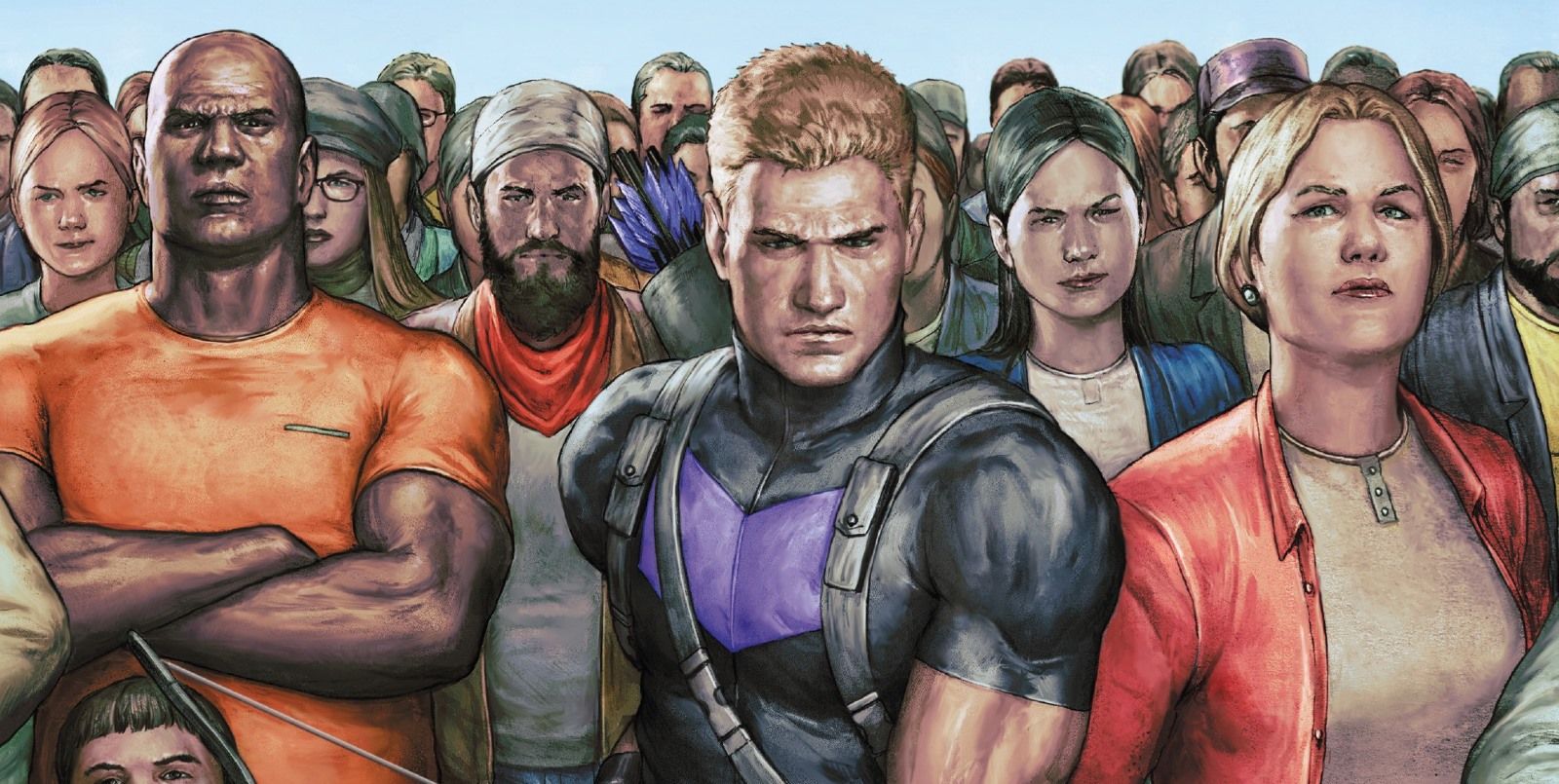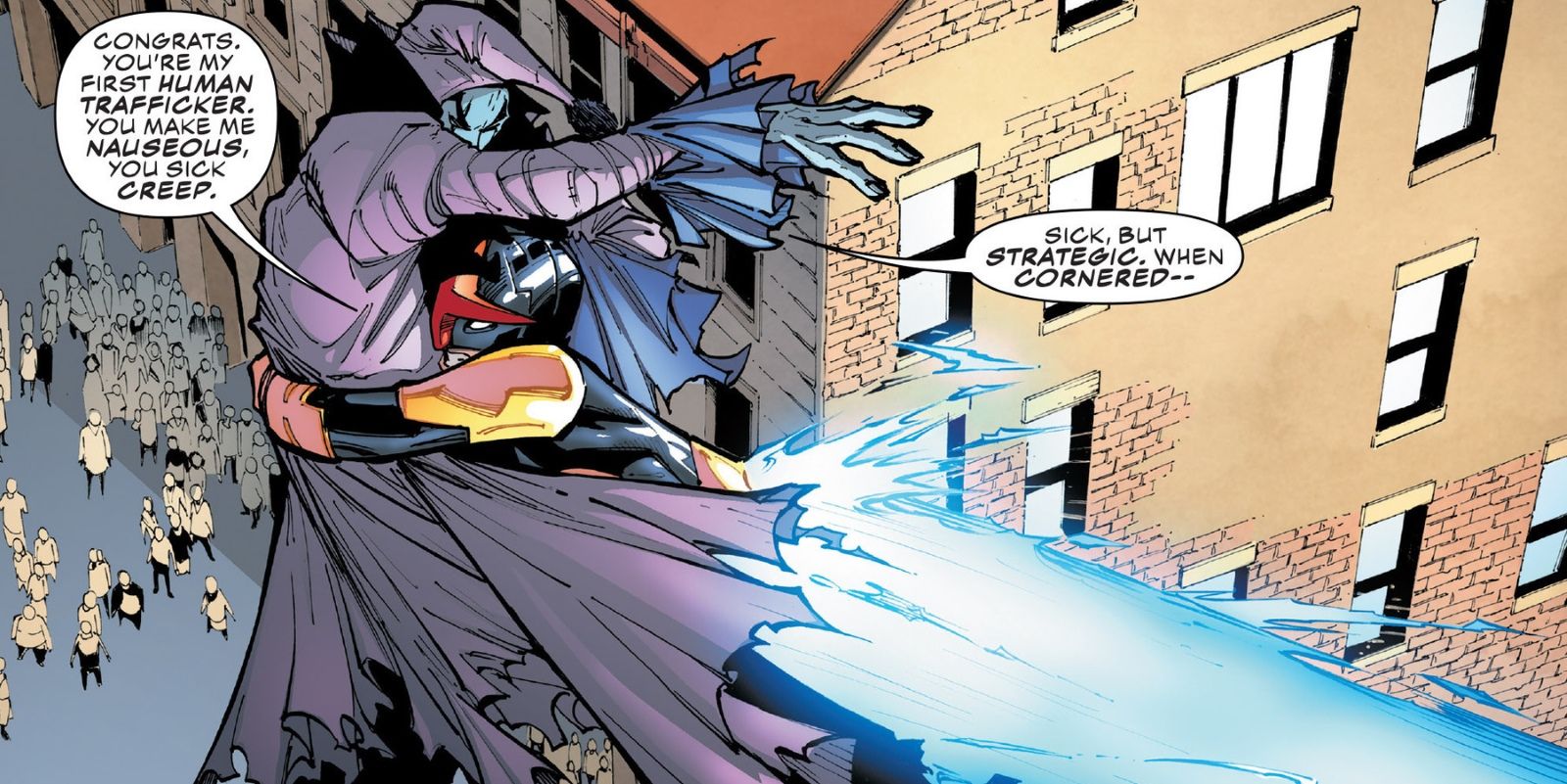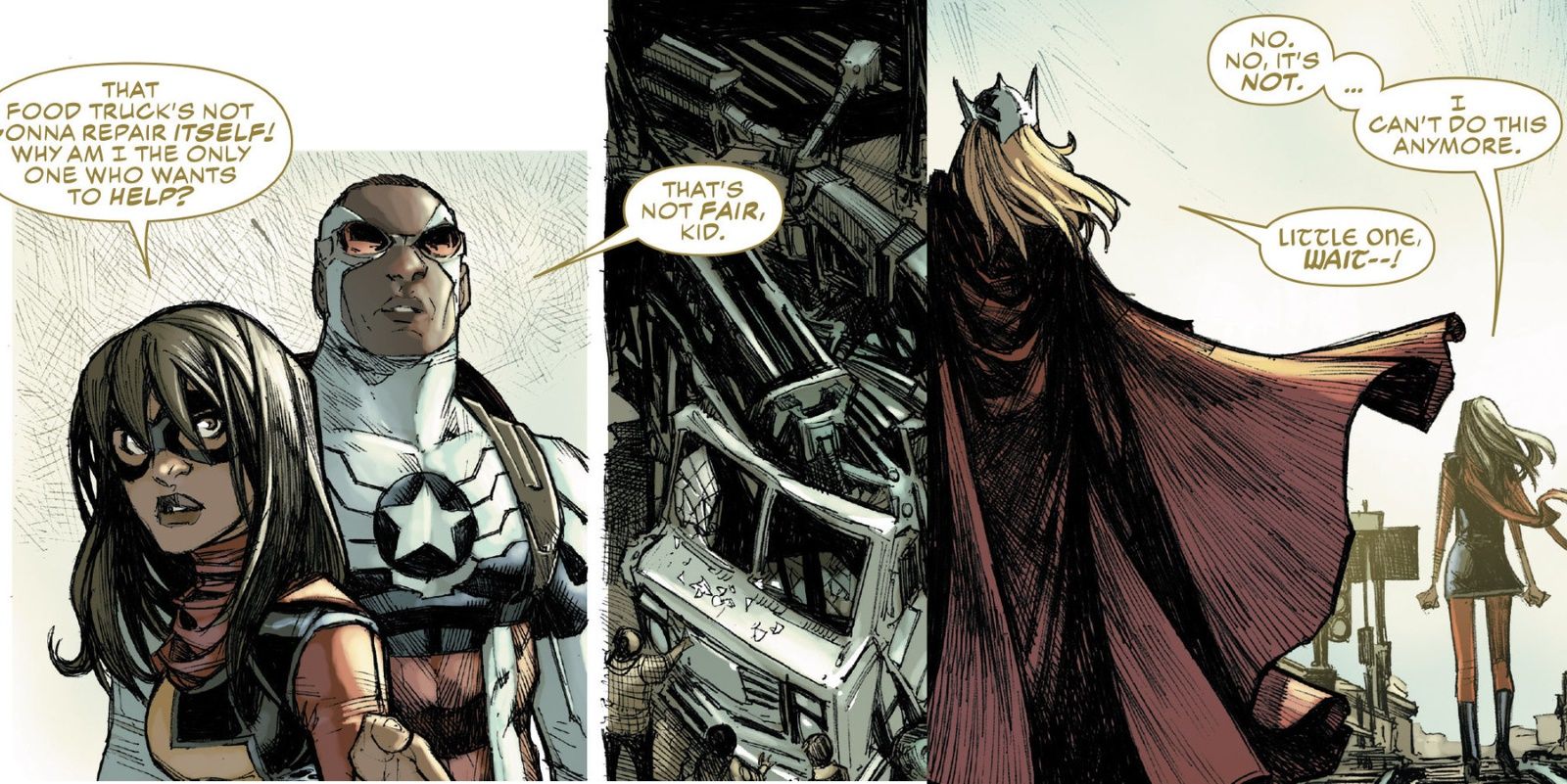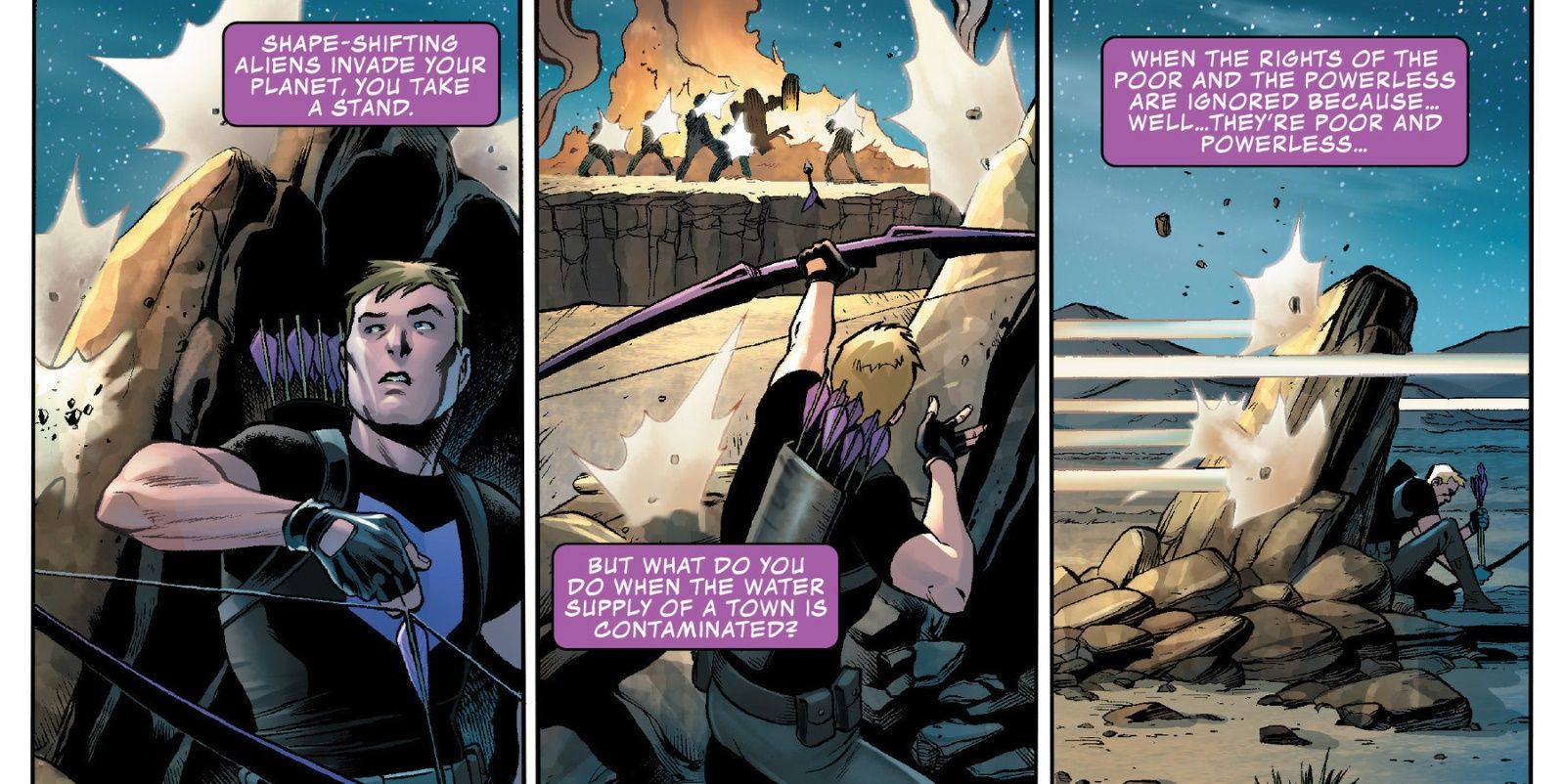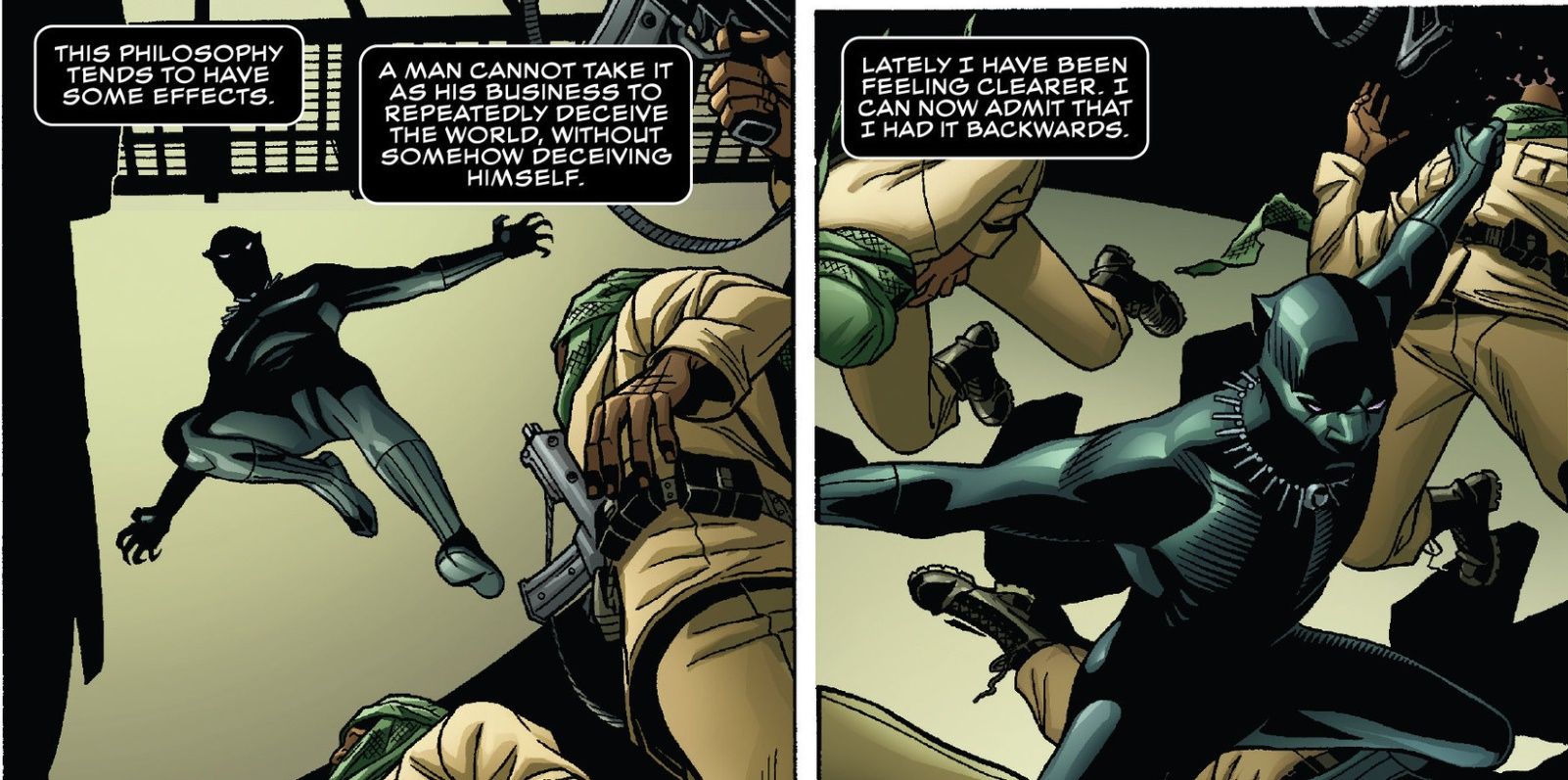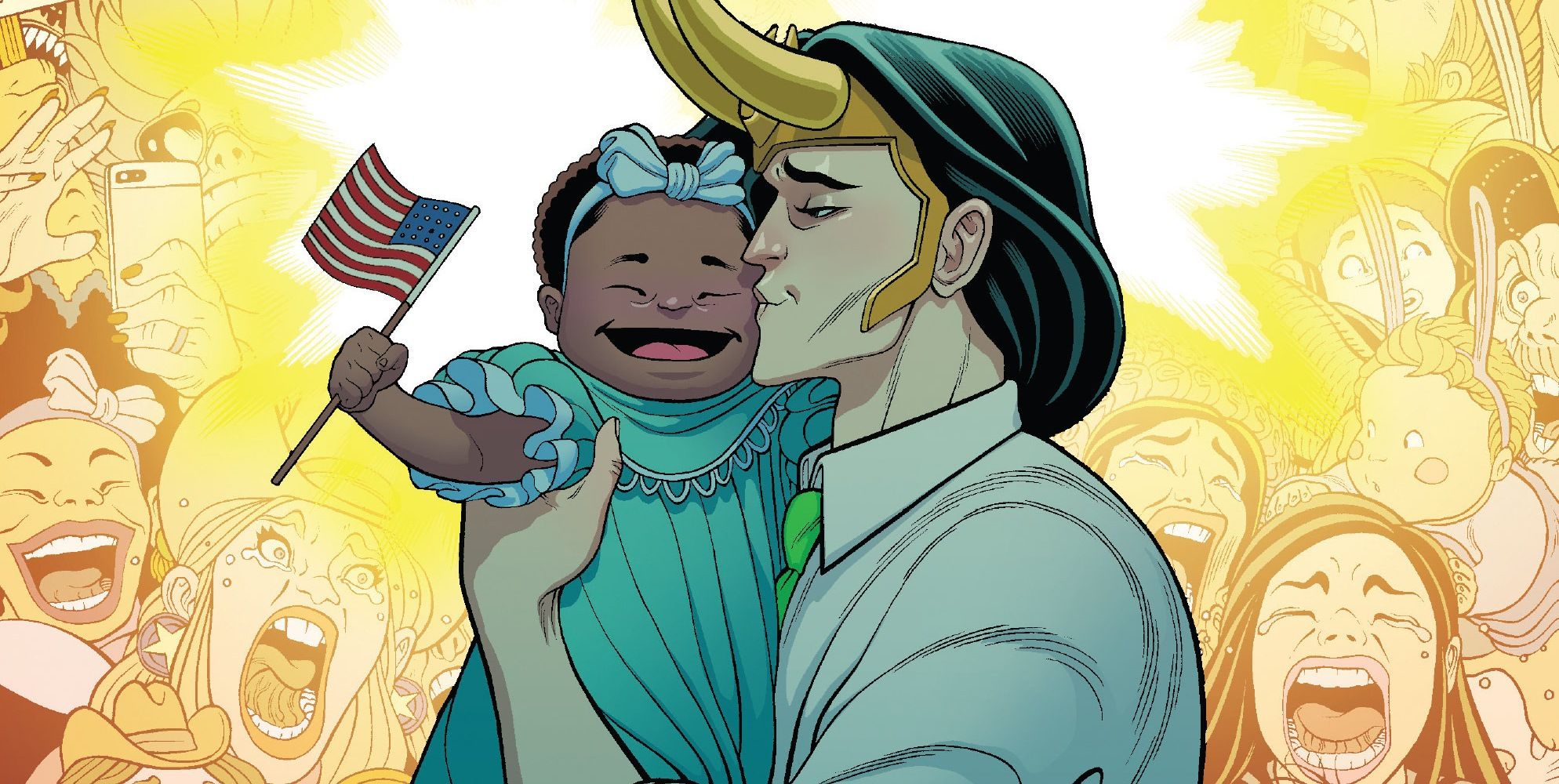[WARNING: Contains minor SPOILERS for Champions, Occupy Avengers, Black Panther, and Civil War II.]
-
As surprising as it might be for some, comic books have a long history as a medium of political commentary. Before the self-imposed Comics Code Authority, comic books subtly delved into political issues and hosted gay, lesbian, and minority writers who otherwise wouldn’t find a voice. While modern writers may focus on compelling stories and thought-provoking characterizations for well-known icons like Wolverine or Batman, their sociopolitical views are bound to broadly inform, if not overtly slip into the dialogue, situations, allegorical themes, editorial decisions, and subplots.
A decade ago, Marvel’s critically-lauded Civil War found inspiration from the Homeland Security (or “Patriot”) Act and its tight-rope walking over and around civil liberties in the name of national security - Iron Man stood for the nation, while Captain America stood for the right to privacy of its citizens. The X-Men themselves began as a parable for civil rights, gender rights, and human sexuality in the public eye.
Sometimes comic book symbolism is as plain as the metal mask on Doctor Doom’s face, and other times it dwells between the panels. As long as compelling stories don’t play second fiddle to sociopolitical issues (unless the story is the issue itself), most people barely register them. Even when the books are titled things as culturally charged as "Occupy Avengers" - a book from the mind of writer David F. Walker, who discussed the company's commitment to ideals during a Marvel interview:
“In terms of “ripped from the headlines” politics aspects of stories, whatever you want to call it, I look back on the comics of my childhood in the 70’s. I look at the Harry Osborn drug issues of Amazing Spider-Man. And then going back even further. The creation of Captain America even. That was nothing but politics in that. It was a direct response to America’s involvement in World War II, of helping Americans wrap their minds around the concept of what they were being told was good versus evil.”
Whether subtle or overt, comics have always had a socially aware subtext (if not... text). Current Marvel books like Champions and Occupy Avengers have left behind the superhero-on-superhero shenanigans and brought ‘real world problems’ back into the equation. The real question is, can Marvel continue its four-color tradition of socially-charged topics while creating an engaging and thoughtful plot?
The Champions Break Up a Sex Slavery Ring
Overall, the first two issues of Marvel’s Champions have been a delight to read. Admittedly, the dialogue and general vibe is a touch on the teenybopper side of things, but every character in the book is... well, a teenager. Does it make them unreadable for adults? Not at all.
The premise of Champions is rooted in the Civil War II conflict, as Ms. Marvel and a number of her younger Avengers cohorts grow weary of indulging in all the hero in-fighting. At the same time, they notice the incredible toll their conflicts take upon the average, everyday people around them (similar to the premise of Damage Control and the DC/NBC show Powerless). Citizens are growing fed up with all the carnage, and so are the youngest of Earth's mightiest heroes. So they form a new, socially-aware superhero squad – one dedicated to fighting evil but also helping their fellow humans deal with the aftermath – and strike out on their own.
Champions #1 dives into a very real, and disturbing issue: sex trafficking. The business of smuggling and exploiting human beings has only grown larger in spite of our shrinking world, and after the obligatory exposition, the meat of the plot finds the team uncovering and busting up a gang of human traffickers (led by what appears to be a Kingpin in shadow). Although having a clown-based supervillain smuggle teen girls into the country may seem a little hokey, it isn’t any less goofy than, say, a guy who’s made of sand attacking a high-schooler bitten by a radioactive-spider. Honestly, in the context of his deeds, the fact that Pagliacci (someone's clearly not an opera fan) dresses like a clown actually made him creepier.
The Verdict:
Did Champions #1 feel heavy-handed in any way? Not really... since it was clear we were still in a superhero adventure. There may be much to consider given a handful of creeps in hiding, kidnapping people and forcing them into prostitution... but generally speaking, everyone's down with some teen superheroes beating the crap out of human traffickers. The story was heartfelt and poignant, the first issue was well-executed, and the socially resonant issues never overwhelmed the plot itself. Here’s looking forward to more from Marvel’s Champions.
Occupy Avengers Gives Fists to the Voiceless
Occupy Avengers, which unsubtly takes its name from the divisive "Occupy *blank*" movement, starts slowly. However, with an interesting premise and a likeable hero at the helm, it takes off running in a flash. Don't let the title be a turnoff, because there are a tons of good, old fashioned super-heroics to enjoy here, especially for fans of no-nonsense Avenger Clint Barton aka Hawkeye.
Rolling out of Civil War II, Occupy Avengers #1 explores Clint Barton’s life after he becomes world-famous for killing his friend Bruce Banner. People everywhere applaud him for taking out the ‘menace’ that was the Incredible Hulk., but rather than basking in the limelight (okay, maybe a tiny bit) he’s racked with guilt and remorse over Bruce's death – something few of his boosters truly understand. As he crisscrosses the country, though, he discovers a lot of people who also have no superpowers to speak of dealing with real problems - problems a crack shot with a bow and arrow can’t just shoot (or can he?).
His latest destination is New Mexico, where a local reservation has been poisoned by illegal dumping. But when some tribe members dismiss the Avenger as looking for another half-assed publicity stunt, things get complicated (as they do in the real world). Clint isn’t having it, though. Saving the world by thwipping Thanos between the eyes is one thing, but helping people with smaller but equally important problems is just as vital to a hero's work. As only a superhero can, he goes after the gang of thugs responsible for dumping noxious substances into the water supply directly, teaming up with second-string superhero Red Wolf to make irresponsible disposal a little less profitable.
The Verdict:
While depicting the corporate dumpers as armed thugs seems a little heavy-handed, it makes sense in the context of a comic (it’s a shame the eco-terrorists of this world aren’t so easy to spot and stop). As an added bonus, OA also brings back C-lister Spider-Man villain Hydro-Man. Walker’s sharp writing and Carlos Pacheco’s expressive art and subtle characterization also creates a believable world for Clint to venture through. As one who is too often pushed to the side - especially in the MCU - it’s good to see Hawkeye finally get some time in the spotlight, and Clint's down-to-earth attitudes and clever wit also take the cutting edge off Walker’s sharp social commentary.
Black Panther Loses Control of Wakanda
Following a series of tragic events, including Namor and Doctor Doom flooding the nation, Thanos’ invasion, and Erik Killmonger’s Nigandan conflict, the once-stable country of Wakanda has lost faith in its king. As a result, an insurgent group known as The People – led by Nigandan-war survivor, Zenzi and Wakandan rebel Tetu – have emerged to destabilize the country. Fueling the fires of dissent along with Iron Man villain Ezekiel Stane, the pair set out to unseat the Black Panther, believing they know what’s best for the country.
Through Ta-Nehisi Coates’ writing, the philosophical implications of being a true leader are the heartbeat of the unfolding story. T'Challa finds himself questioning his abilities more than ever, but also arrives at a new sense of purpose, as well as a touch of ruthlessness. Coates also interweaves a rich tapestry of political intrigue, as opposition leaders aren't simple one-dimensional villains. The mystical, ancient traditions of the Black Panther family are also explored through T'Challa's sister, Shuri, and her trip through the dreamworld of The Djalia.
Readers may get so caught up in the story that they’ll forget all about the deeper meaning simmering beneath the surface – a nation divided, a group of warriors looking to reclaim the nation from their past, the bold promises of upstarts – until the chapter is over, anyway. The first 8 issues continue to shake the technologically-advanced but deeply-unsettled nation to its core, and there's so much more to come.
The Verdict:
One of the most engrossing and politically-charged comics in recent memory, Coates’ run on Black Panther combines masterful storytelling with stunning metaphysical, intellectual, and emotional depth. His tale of intrigue and introspection (with punching!) is also blessed with the evocative, stylized artwork of Brian Stelfreeze, and the always-stunning palette of consummate Marvel colorist Laura Martin.
The story may hinge on the machinations inside the hearts and minds of humans, as well as the compromises involved with leading (and being) a nation, but it never plays those cards as its primary hand. The political allegory in Black Panther hovers over the reader's head, not in their faces.
A House of (Sociopolitical) Ideas
Although the preceding books are merely a sample of the dozens of regularly-published comics in Marvel's catalog, they seem to be making a solid effort to direct their sociopolitical efforts at a broad swath of readers. Some targets, of course, are a little too tempting, such as the 2016 U.S. election cycle and its surprising conclusion (apparently Loki could win after all). Each of the books mentioned above are, however, excellent examples of comics that offer astute social commentary (relatively) seamlessly blended into their traditional superhero stories.
Certainly, not every book the publisher commissions is as well-written and unobtrusively philosophical, but the House of Ideas has proven itself highly capable of whipping up intriguing tales of a deeper significance, as any true purveyors of art should. Whether covering sex traffickers, environmental issues, political unrest, or presidential elections, Marvel has allowed its creative team an opportunity to present thought-provoking and exciting books. Here’s hoping for many more issues of all three, as well as dozens more offerings which stimulate for the mind, heart, and body.
If you enjoy comics which require a few extra cranks of the 'ole thinking cap, check out other these clever tales by some of Marvel’s brightest writers, including World of Wakanda by Roxane Gay, the recent Nighthawk run by David F. Walker, The Vision saga by Tom King, and Captain America: Sam Wilson, among others.
Next: X-Men Prepare For War Against The Inhumans
Source: Marvel

